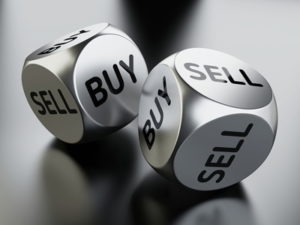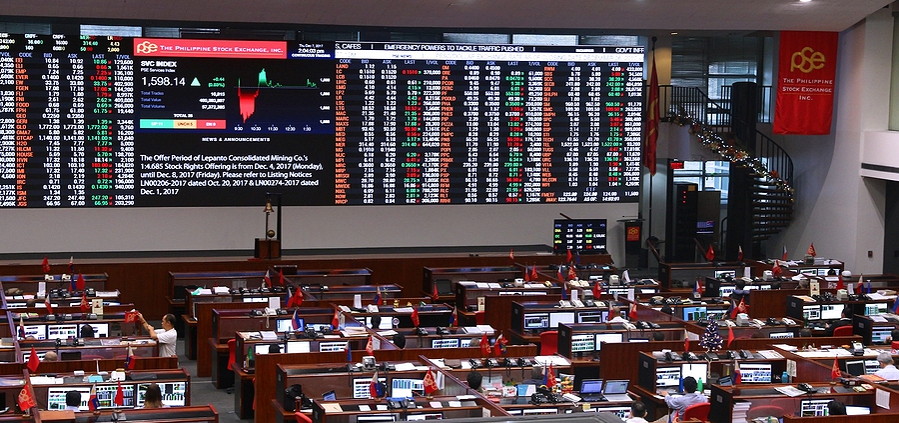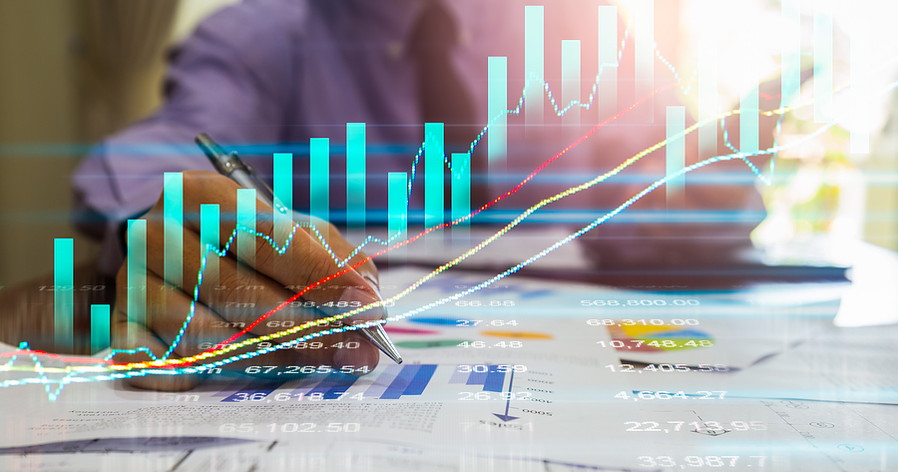 Trading on stocks, forex, commodities and so on has been something that many people have taken an interest in over the decades. And in the same vein, it has been able to provide great rewards to players throughout those years, too. Yet, why is this not classed as gambling in the United Kingdom? You basically take an educated guess on whether the price of an asset will go up or down in a bid to make money. In that case, why is it classed as something separate to gambling when it’s pretty much the same thing?
Trading on stocks, forex, commodities and so on has been something that many people have taken an interest in over the decades. And in the same vein, it has been able to provide great rewards to players throughout those years, too. Yet, why is this not classed as gambling in the United Kingdom? You basically take an educated guess on whether the price of an asset will go up or down in a bid to make money. In that case, why is it classed as something separate to gambling when it’s pretty much the same thing?
In the UK, trading is regulated by the Financial Conduct Authority (FCA), and unlike gambling, any profits gained from it are fully taxable. This is a difference between them indeed, but why are they separated in such a way when so many of their traits are similar? Sometimes, people see trading as being a much more high-end form of professional gambling, whereas typical casino gaming and sports betting for example, are looked down upon as being a low-level activity. But why are these distinctions in place already? Generally, they both require you to deposit money, “bet” on something and potentially receive a pay-out.
We are going to be taking a closer look at why trading is not classed as gambling, and furthermore, why in some countries you are able to trade on stock markets even when gambling is considered illegal. Let’s find out what trading has over gambling that makes it so much more available and accessible around the world.
The Similarities Between Trading and Gambling
 There are numerous similarities between trading and gambling, but the biggest comparison can be made in the fact that there is no guaranteed outcome with either of them. In both cases, traders and players put money into something and then hope it will make them profit in one way or another. Therefore, regardless of if you are forex trading on the Hungarian forint or placing a bet on a casino slot game, you are wagering on there being a win for you, rather than a loss.
There are numerous similarities between trading and gambling, but the biggest comparison can be made in the fact that there is no guaranteed outcome with either of them. In both cases, traders and players put money into something and then hope it will make them profit in one way or another. Therefore, regardless of if you are forex trading on the Hungarian forint or placing a bet on a casino slot game, you are wagering on there being a win for you, rather than a loss.
At the same time, a professional forex trader must accept that there is no real way of predicting with absolute certainty that a trade will be a winning one. This is exactly the same as someone playing poker or blackjack, for example. In both of these instances, you are risking your money in the hope that it will produce more in return. Both professional traders and professional gamblers should enter into such activities with the understanding that losing is just a part of the game, in general.

One final thing to make mention of is that regardless of whether you are gambling or trading, there’s a psychological grit required. You need to be fully prepared for losses to occur, because they are a natural part of both sectors. You shouldn’t overreact to these and try chasing your losses by betting/trading more in subsequent rounds. Both sectors should provide a fun way to try and make money, and you shouldn’t be using more money than you can afford to lose.
The Differences Between Trading and Gambling

Of course, while the are similarities between both industries, there are differences as well. To begin with, if you are proficient in trading, you will have a system in line for participating in such. This, in theory, should present you with a positive expectancy over the long-term. That system should have been back-tested, so you will be aware of the ins and outs and you will understand that there are occasions where you will consistently lose money. Over a long period of time, however, you should come out on top.
Gambling has much less science behind it, and more often than not, it is based mostly on luck. Therefore, the results over time may not be quite as consistent as with trading. Some people will also use automatic trading systems for their trading activity, which is not something that is frequently available outside of online poker when it comes to gambling.
Technical analysis of the trading markets is something that is a major contributor to the differences between these sectors, too. You can have a set of indicators or a trading system in place overall, and this can give you a hint as to when conditions could be correct to place a trade. While it will be a bit different in each type of gambling game, overall you are betting on the random result of the dice or cards etc. and you don’t have much back up to your thesis as to why you placed a bet on the game.
It’s also prominent to note the difference between trading and amateur gambling when it comes to your money management. Professional traders won’t proceed with risking too much of their capital on any specific trade, while an amateur gambler frequently opts to go “all in” on a wager. that is a fairly reckless way to go about betting, but it happens far more often than you may imagine.
Finally from a government perspective profits on trading are taxable whereas profits from gambling are not.
Is Trading a Form of Gambling?

When it comes to gambling, this is defined as staking something on a contingency. However, when it comes to trading, gambling takes on a much more complex dynamic than that specific definition explains. Some traders may be gambling without knowing it, but it generally depends upon how they are trading as to how close to being a gambler they are. There are so-called “hidden ways” in which traders could be gambling with their money, rather than outrightly trading effectively.
Of course, it can also depend upon your own definition of trading and gambling. If you consider trading to be a form of gambling, then the likelihood is that you won’t change that opinion. However, clearly, a distinction has been made by the official channels, and that is why trading is accessible in some places around the world while gambling options are not.
Yet, it’s remains hard to argue with the notion that playing the stock market is just like gambling. This is because most people only focus on the aspect of the stock market that is akin to gambling – in essence, everyone is always seeking out that big win. However, while some people do get lucky with the stock market, for the most part, it requires a controlled and balanced strategy. However, it’s important to note that the stock market isn’t the same thing overall. Gambling is a zero-sum game, with a winner essentially taking money from a loser in a roundabout way. No net value is ever created with it.
The stock market increases wealth for the whole economy, though. When someone buys a stock, they essentially buy a share of ownership in an actual company and a share of the profits that the company or asset generates. The remaining profits are placed back into the company or asset itself, allowing it to grow and develop new products and services.
Stock prices move up and down as investors try to predict the amount of profit that will go to shareholders. It’s quite a difficult process to assess the future profits, because so many different events and issues can affect them in one way or another. If a company struggles with the availability of supplies or if there is political unrest in a specific country or the cost of shipping increases, these things and more can affect the stock market. that is not something that happens with the gambling scene.
How Does a Trader Avoid Becoming a Gambler?
 For someone participating in trading evading the outcome of being a gambler, it’s imperative that the trader makes trades with a positive expected value. Let’s just make a comparison between trading and blackjack for example.
For someone participating in trading evading the outcome of being a gambler, it’s imperative that the trader makes trades with a positive expected value. Let’s just make a comparison between trading and blackjack for example.
The object of playing blackjack is to amass cards that equate to as close to 21 as possible. To win, the total of your hand needs to be closer to 21 than that of the dealer. Those are just the basic rules behind any variation of blackjack, and even though such games tend to have a lower house edge than say slots for example, there’s still enough favour leaning towards the house. This is what makes playing blackjack a gamble – because the expected value of playing the game is negative. There are, of course, some methods that you can use to reduce the gambling side of the game.
The difference in trading is all about the long-game, though. If you are not intending to become a trading gambler, then you need to establish a set of rules and test them over a large number of trades. This allows you to determine the expected value of your strategy rules. Strategies like this don’t have to be complicated at all, but they do need to be well-tested on the other hand. If you approach the stock market without any sort of tested strategy, then you are essentially gambling, rather than trading.
Questions have been asked though, as to why in the US (or other areas) it is legal to trade on the stock market but not legal to bet on the Super Bowl, for example. That being said, in most of the United States, the Super Bowl is wagered on, but not in a legal way. The bets on such are unenforceable. In this instance, if the loser doesn’t pay the winner, there isn’t a legal framework in place to back up the winner’s claim.
Trading in the US is legal, though. If a loser doesn’t pay the winner, so to speak, on trades, the winner can take the loser to court and file a lawsuit against them for such. But why did the American legal system differentiate between betting on sports and trading on the stock market, from a very early age? Well, it wasn’t actually because one focuses more on luck and the other more so on a certain type of skill. In fact, both sectors have incorporated quite the mixture of both luck and skill in many instances.
 It also wasn’t done due to concerns over corruption. Both sectors can, and certainly have had, their own share of corrupt scandals throughout the years. The actual difference between the two areas was actually based primarily on the idea that risk is tolerable as a means to some greater end, but that it’s not a worthwhile end in itself.
It also wasn’t done due to concerns over corruption. Both sectors can, and certainly have had, their own share of corrupt scandals throughout the years. The actual difference between the two areas was actually based primarily on the idea that risk is tolerable as a means to some greater end, but that it’s not a worthwhile end in itself.
Therefore, in transactions defined as wagering, such as those on horse racing or casino gameplay, there was no basis beyond the participants’ enjoyment of the risk itself. Those defined and approved as speculation though, involved some other useful societal end, even if the risks associated with that speculation were indistinguishable from those associated with gambling.
Speculation in trading made society richer via the increase in asset prices etc. even if it made around half of those speculators poorer. Speculation in corporate shares gave rise to valuable new enterprises, and even though the line between speculation and gambling was very difficult to draw, this view was taken as a way of separating trading from gambling.
That same view was adopted in various other countries around the world, including locations like the United Arab Emirates, Singapore, Qatar and Lebanon. These countries do not have their own legal gambling sectors, but they do offer residents the possibility of trading on worldwide stock markets.
Conclusion

In essence, it’s all to do with the fact that gambling doesn’t really help out the economy in the way that trading does. Of course, gambling companies must be pay tax on their revenue, as must all companies. However, trading on the stock markets is something that actively helps out companies and the economy all around.
Gambling is simply considered as a form of entertainment for people, rather than an official way of earning money through high-quality trading strategies (hence why gambling profits are not taxed and are seen as a ‘prize’). Furthermore, trading is often seen as something that you need to learn a lot more about before you garner success on a higher level from. Gambling is something that pretty much anyone can involve themselves in, and there isn’t really a lot of skill required to engage in such in most circumstances.
